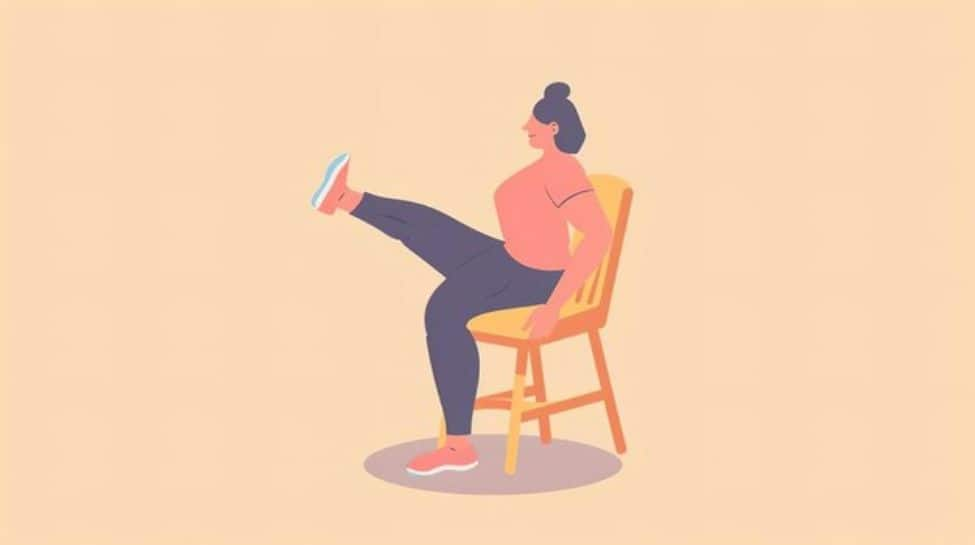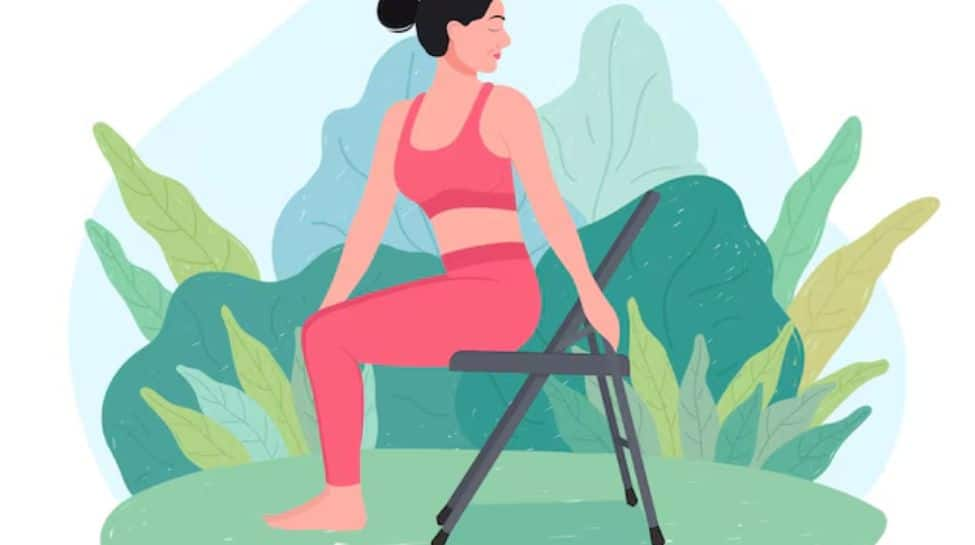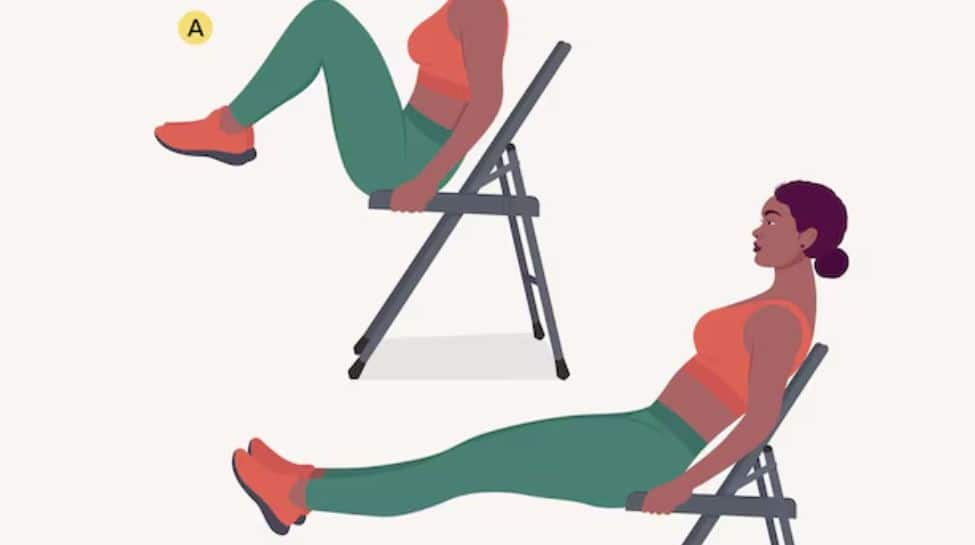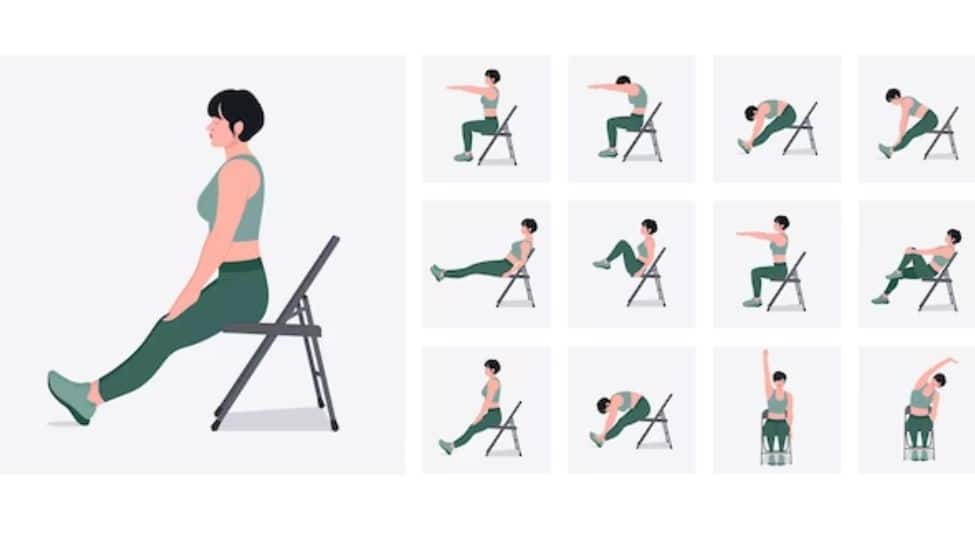For many of us, long hours spent sitting at a desk can contribute to weight gain, particularly around the belly. While standing desks and regular breaks are great ways to stay active, you can also incorporate simple exercises right at your desk to burn calories and reduce belly fat.
Here are eight easy desk exercises that you can do while sitting to help target your belly area:
Seated Leg Lifts

How to do it:
Sit up straight on your chair, keeping your feet flat on the ground.
Engage your core muscles and lift one leg straight in front of you, holding it for a few seconds.
Lower it back down without touching the floor, then repeat with the other leg.
Benefits:
This exercise targets your lower abs and improves core strength. It also strengthens your thigh muscles.
Seated Bicycle Crunches
How to do it:
Sit on the edge of your chair and lean back slightly, holding onto the armrests or the sides of your seat.
Lift both feet off the ground and alternate bringing each knee toward your chest while twisting your torso.
Benefits:
Bicycle crunches are great for engaging your obliques and lower abs, giving a full abdominal workout.
Tummy Twists

How to do it:
Sit up straight and place your hands on your sides or behind your head.
Twist your torso to the right, bringing your left elbow toward your right knee while lifting your right leg slightly.
Return to the center and repeat on the other side.
Benefits:
Tummy twists target the oblique muscles and help to define the waistline.
Chair Marches
How to do it:
Sit upright with your feet flat on the floor and hands resting on the armrests or the sides of your seat.
Lift one knee toward your chest, hold for a second, then lower it back down. Repeat with the other leg.
Benefits:
This simple movement keeps your core engaged and helps burn calories, targeting both the lower abdomen and thighs.
Seated Knee Tucks

How to do it:
Sit on the edge of your chair and hold onto the sides of the seat.
Lift both knees toward your chest, contracting your abs as you do so.
Lower your legs back down, but don’t let them touch the ground, and repeat.
Benefits:
This is one of the most effective desk exercises for strengthening your lower abs and tightening the abdominal region.
Oblique Stretch
How to do it:
Sit up straight with your feet firmly on the ground.
Raise one arm over your head and lean to the opposite side, stretching your obliques.
Hold for 10-15 seconds and repeat on the other side.
Benefits:
This exercise is excellent for stretching and toning the obliques, helping to slim down the waist area while improving flexibility.
Seated Russian Twists
How to do it:
Sit on the edge of your chair, lean back slightly, and hold onto the sides of your seat for support.
Keep your feet off the ground and twist your torso from side to side.
Benefits:
Russian twists effectively work the entire abdominal region, especially the obliques.
Core Bracing
How to do it:
Sit upright with your back straight and feet flat on the floor.
Tighten your core muscles as if you’re preparing for someone to punch your stomach.
Hold the contraction for 10-15 seconds, then release. Repeat this several times.
Benefits:
Core bracing helps engage and strengthen your deep abdominal muscles, which are crucial for a toned and flat stomach.
Bonus Tips for Burning Belly Fat
While desk exercises can help engage your core muscles and burn some calories, remember that spot reduction of fat is difficult. For the best results in burning belly fat:
- Maintain a healthy diet rich in whole foods, lean proteins, and fiber.
- Stay hydrated by drinking plenty of water throughout the day.
- Incorporate cardio into your routine when possible, such as brisk walking during breaks.
- Practice mindfulness to reduce stress, which can lead to abdominal fat.
(This article is meant for informational purposes only and must not be considered a substitute for advice provided by qualified medical professionals.)


